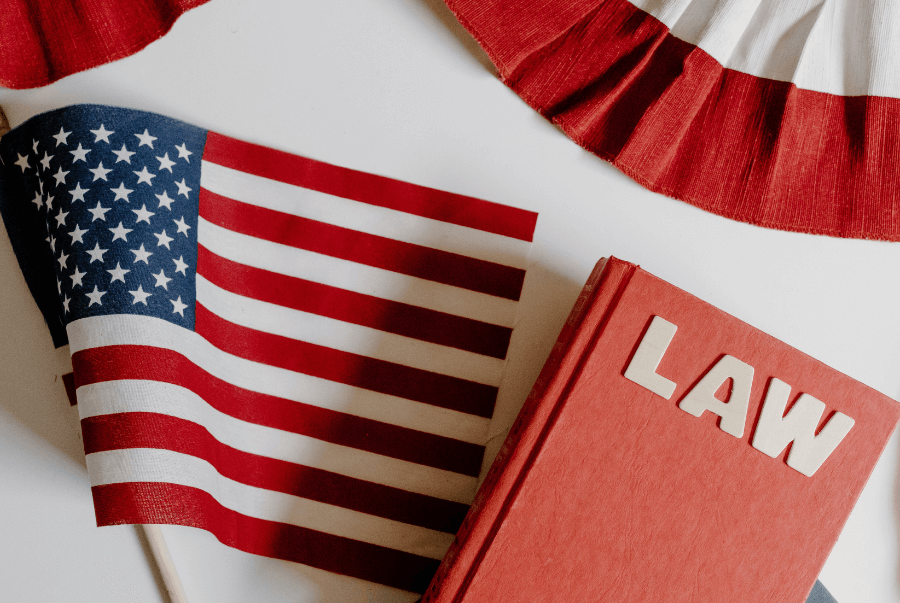
• 27 / 02 / 2019
Introduction
A foundational element of American constitutional principles is the First Amendment, which is of utmost importance. This pillar of liberty, the first amendment to the US Constitution, has influenced the country's legal system and served as evidence of the country's dedication to individual liberties. We dissect the First Amendment's profound significance in American law in this thorough investigation, looking at its historical foundations, the five freedoms it protects, significant court decisions, and long-lasting effects on the structure of American society.
Historical Origins:
1. The Bill of Rights: The First Amendment is a component of the ten amendments that made up the Bill of Rights, which was ratified in 1791.
James Madison drafted the Bill of Rights in response to worries about governmental power limitations and individual freedoms.
The First Amendment, which highlights the framers' dedication to preserving fundamental liberties, came to be seen as a fundamental component.
2. Revolutionary Influences: The American colonies' experiences living under British rule and the principles of the Enlightenment are the foundation of the First Amendment. It was believed that the freedoms of assembly, speech, and religion were crucial defenses against despotism.
The English Bill of Rights of 1689 and philosophers like John Locke had an influence on the framers of the new republic, who aimed to incorporate these ideas into the founding documents.The Five Liberties:
1. Freedom of Speech: The First Amendment guarantees the right to free speech, enabling people to voice their ideas, opinions, and thoughts without worrying about retaliation from the government.
This freedom encompasses a wide range of expression, including written and spoken words as well as artistic and symbolic expressions.
2. Freedom of Religion: The cornerstones of religious freedom are the Establishment Clause and the Free Exercise Clause. It is forbidden for the government to create an official religion, and people are free to follow any religion they choose.
This dual safeguard preserves people's freedom to practice their religion while guaranteeing a clear separation of church and state.
3. Freedom of the Press: This essential First Amendment provision guarantees media outlets the ability to function independently, report news, and hold those in positions of authority responsible.
This freedom, which gives citizens access to information and promotes an informed electorate, is essential to a democratic society's operation.
4. Freedom of Assembly: People have the ability to come together for a variety of reasons, such as political gatherings, community events, and open protests and demonstrations.
This freedom is essential to civic engagement because it allows people to participate in the democratic process and collectively voice their concerns.
5. Freedom to Petition: The ability to petition the government enables people to voice their complaints, request policy changes, and take up causes that the public finds important.
By directly communicating their opinions to the government, citizens are guaranteed the ability to actively engage in the democratic process thanks to this freedom.
Famous Court Cases:
1. New York Times Co. v. United States (1971): Often referred to as the Pentagon Papers case, this historic ruling maintained press freedom. The government's attempt to impede the release of classified material was declared unlawful by the Supreme Court on First Amendment grounds.
2. Tinker v. Des Moines (1969): In this decision, the Supreme Court upheld students' freedom to use symbolic language. By ruling that students had the right to protest the Vietnam War by donning black armbands, the court set a precedent for defending the expressive rights of students.
3. The contentious Citizens United: FEC (2010) ruling focused on campaign finance regulations and the First Amendment rights of corporations and unions to make political expenditures. According to the ruling, these entities' ability to make independent political expenditures was restricted, which went against their right to free speech.
Long-Term Effect:
1. Equilibrium of Rights and Obligations
The First Amendment is now frequently brought up in discussions about how to strike a balance between social obligations and individual liberties.
Courts frequently struggle to define these freedoms' boundaries, taking into account things like public safety, national security, and the possibility of harm.
2. Challenges of the Digital Age: First Amendment issues have changed in the age of social media and the internet. New challenges have emerged as a result of problems like online hate speech, disinformation, and the ability of tech platforms to control content.
Legislators and courts have to negotiate these difficulties while maintaining the values of free speech.
Conclusion
The First Amendment, also known as the "Pillar of Liberty," is a living example of how deeply the US has committed to the principles of democracy and freedom. Its crucial role in forming the character of the country is highlighted by its historical roots in the independence struggles and its continuing influence on legal precedent. The First Amendment continues to be a rock-solid foundation for understanding the fine balance between individual rights and the greater good, even as the US struggles with new frontiers of expression and ever-changing challenges. The Pillar of Liberty stands tall in the constantly shifting field of American law, serving as a symbol of resiliency and the lasting strength of the freedoms it enshrines.
Sign up at UNIPREP, your one-stop platform for global opportunities in education, business, career & life abroad.
Cookies help us evaluate website traffic and improve user experience.Your information will be aggregated with the data of all other users after you agree to our usage of cookies.
UNIABROAD LTD.
Suite 524, Citibase, The Atrium, 1 Harefield Rd, Uxbridge UB8 1EX, United Kingdom
UNIABROAD Technology Ltd.
165/1,Opp Brahmasthana Kalyana Mantapa, Sahukar Chenniah Road, TK Layout, Mysuru, Karnataka
Privacy Policy | Terms & Conditions | Disclaimer | Refund Policy

Privacy Policy | Terms & Conditions | Disclaimer | Refund Policy
2023 © All rights reserved by UNIABROAD LTD.